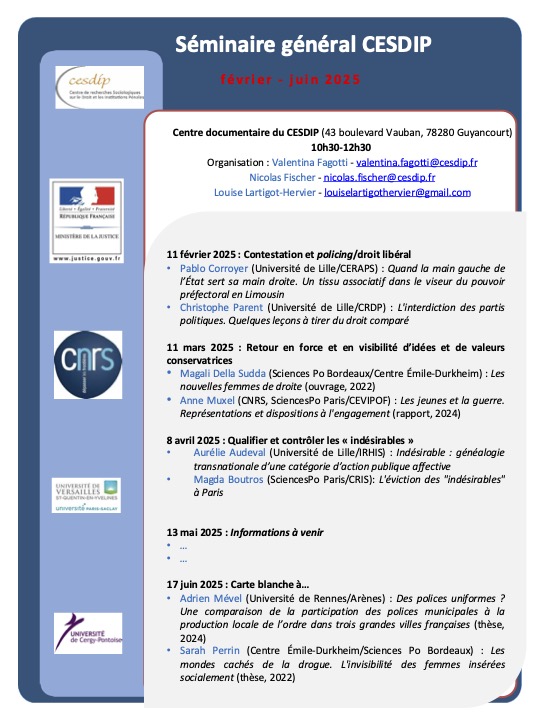A comparative study of England, Spain, Rumania, Sweden and France
by Jennifer BOIROT – june 2014
Jennifer BOIROT is a doctoral student at the CESDIP and Temporary Teaching and Research Assistant (ATER) at the University of Versailles-Saint-Quentin-en-Yvelines. She is completing a thesis on the evolution of the role of forensic psychiatrists in sexual violence cases in Europe.
For the contemporary criminal justice system, the judicial truth concerning an offence is not established merely by finding the offender and applying a legal sanction, it also involves understanding the motives and circumstances surrounding the act, so as to deal with the offender more adequately. Recourse to psychiatry and psychology now enables specialists in these fields to provide information that is henceforth considered essential for understanding the defendant’s personality, accounting for the acts and handling the legal case. Forensic psychiatrists have therefore become an all-important part of the penal and judicial process in Europe.
However, these trends have resonated diversely in the construction and organisation of forensic psychiatric expertise within the criminal justice system in different countries.
Our investigation of a number of countries (England, France, Spain, Rumania and Sweden) has brought to light enormous disparities in forensic psychiatrists’ status and in the “institutional” organisation of forensic psychiatric expertise.
Observation of the dynamics of the construction of expertise provides a good understanding of the stakes connected with the forensic psychiatrist’s role in criminal justice and the judicial process in Europe at each stage in the procedure (from investigation up to trial, from assignment to the task up to use of the forensic report).
The hybrid status of forensic psychiatrists in Europe, ranging from “simple” occasional partners providing expertise as a complementary activity (in England, Spain, and France) to public employees for whom this is full-time work (in Sweden and Rumania), affects the way the person is examined. The resources and methods used to draft a report differ, depending on whether the expertise is “public”, collegiate and multidisciplinary (in Sweden and Rumania) or “private” and individual (in England, Spain and France).
The content of reports is much the same, however : the “typical bare bones” of criminal psychiatric expertise revolve around the issues of evaluation of the person’s responsibility (liability), dangerousness and risk of recidivism. This convergence indicates a degree of homogeneity regarding the conception of the forensic psychiatrist’s task in the five countries studied.



